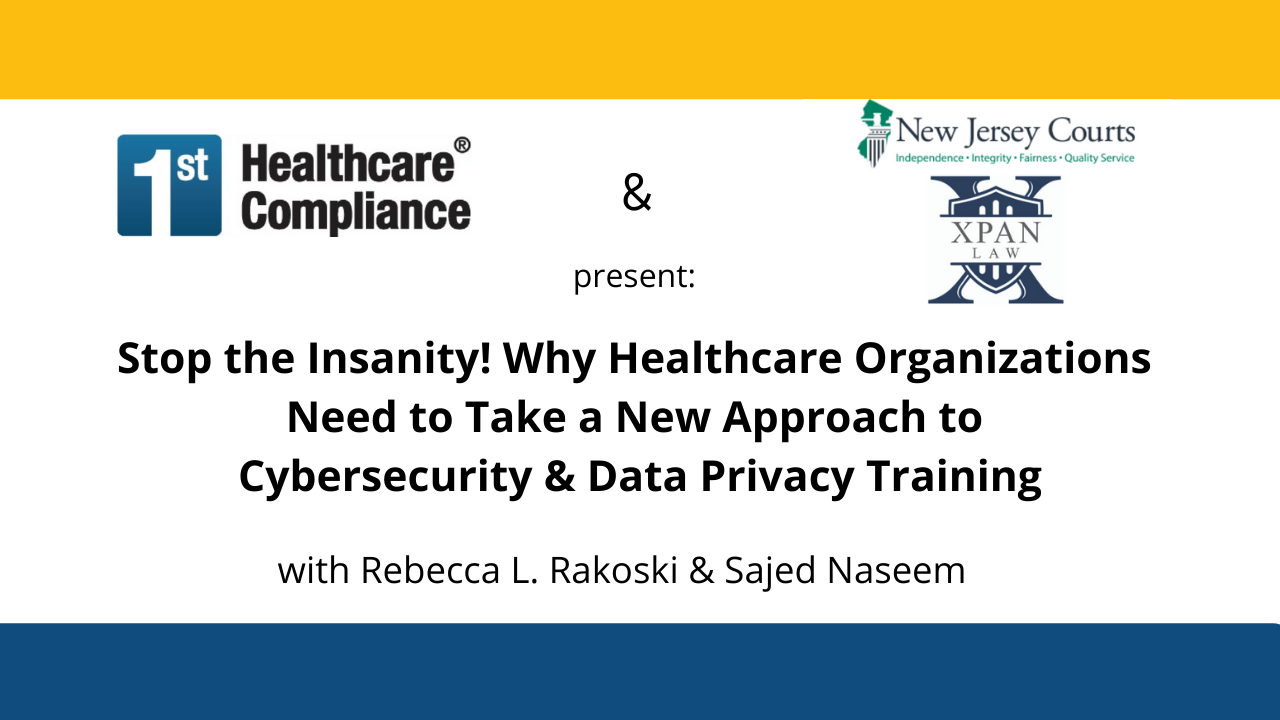
Stop the Insanity! Why Healthcare Organizations Need to Take a New Approach to Cybersecurity & Data Privacy Training
Rebecca L. Rakoski, managing partner at XPAN Law Partners and Sajed Naseem, Chief Information Security Officer (CISO) from NJ Courts is presenting this engaging webinar. Employees are one of an organization's greatest strengths, but also its greatest weaknesses. For years cybersecurity and data privacy advocates have been arguing that training employees is the only way to safeguard the organization. This is especially true in the healthcare arena where HIPAA training is required. However, these same healthcare organizations engage in training for their employees only to stare down the barrel of a data breach caused by one of those trained employees.The question becomes, why do we continue to repeat the same exercise expecting a different outcome?
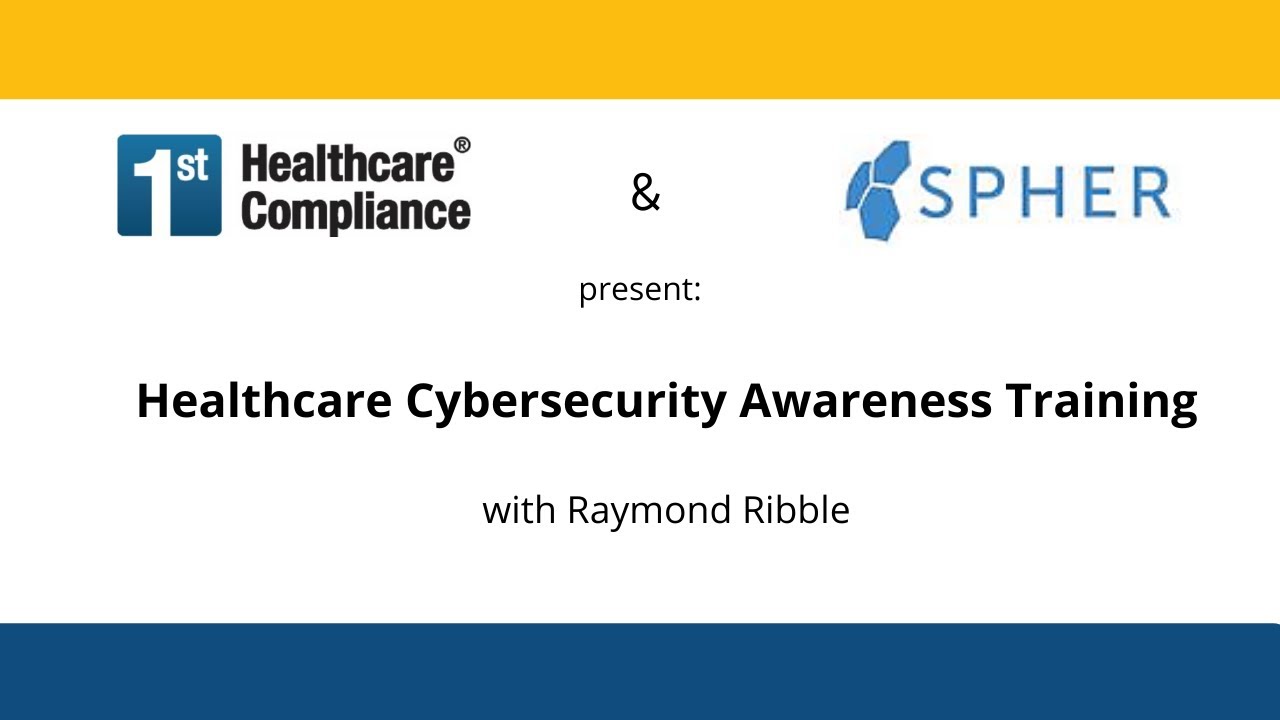
Healthcare Cybersecurity Awareness Training
Raymond Ribble, founder of SPHER, Inc. a leading SaaS-based compliance analytics solution addressing PHI protection and cybersecurity in healthcare, leads this informative webinar. This presentation takes the audience through a series of scenarios and lessons learned that can assist in securing the employee "endpoint" either in the office or at a Home Office. The presentation highlights key security measures a person can deploy to create a better security environment in order to protect their personal and professional documents from unauthorized access.
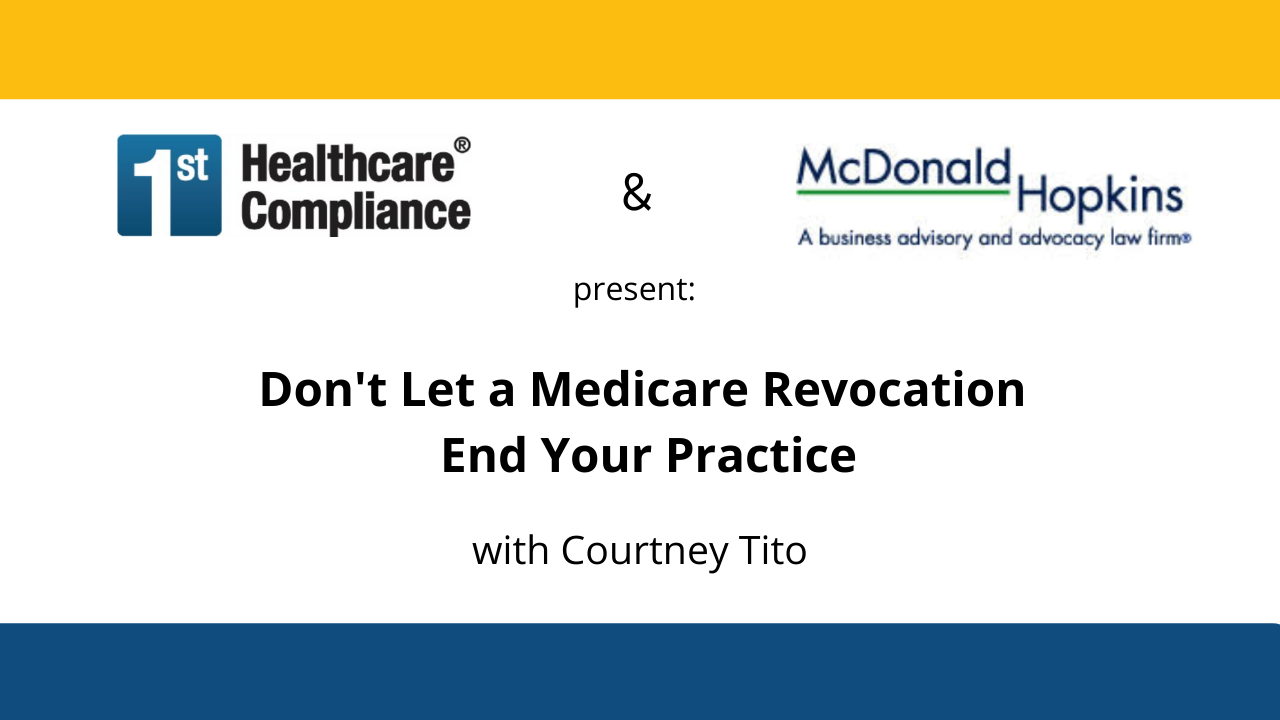
Don’t Let a Medicare Revocation End Your Practice
Courtney Tito, Member of the Health Law group at McDonald Hopkins, LLC in its West Palm Beach office will be presenting this informative webinar. This presentation will provide the participants with an overview of the bases for Medicare Revocations and what types of issues can be addressed now to hopefully avoid a revocation action in the future. Additionally, Courtney will provide some thoughts on how best to respond to a notice of revocation and the impact of September 2019 Final Rule on the effect of revocation.
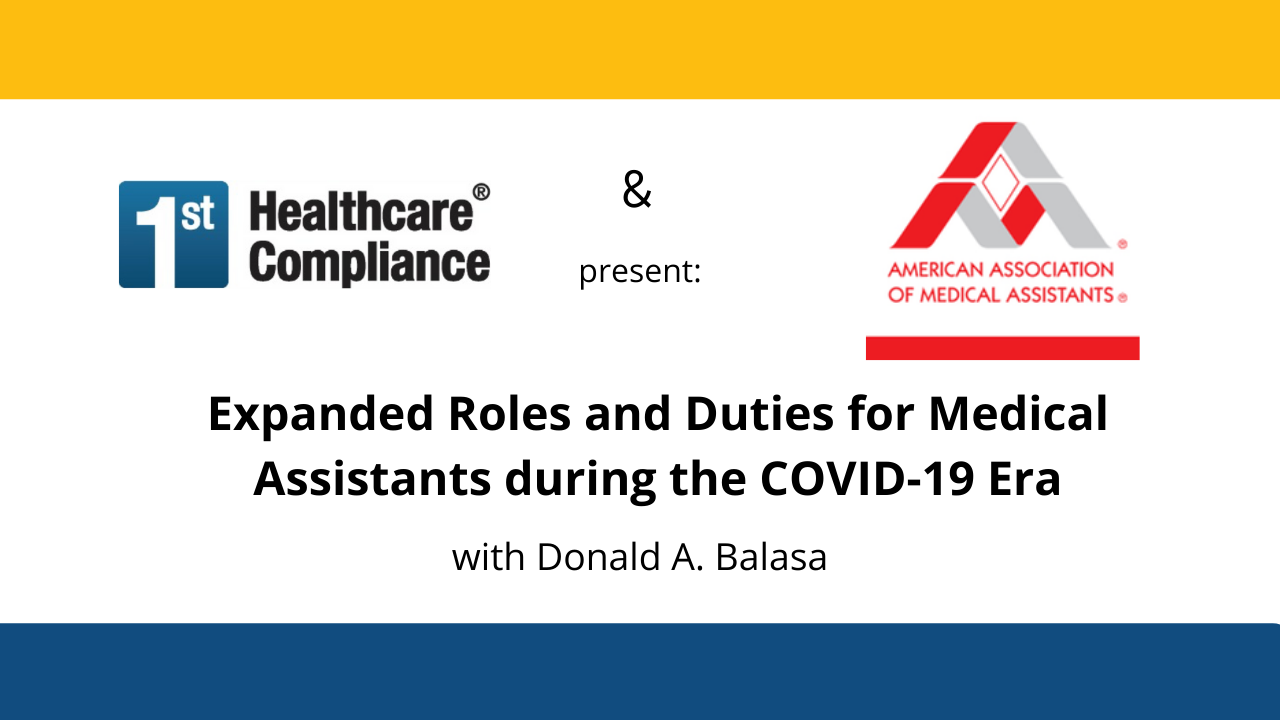
Expanded Roles and Duties for Medical Assistants during the COVID-19 Era
Donald A. Balasa, JD, MBA, Chief Executive Officer and Legal Counsel of the American Association of Medical Assistants (AAMA) leads this timely and informative webinar. The medical assisting profession has risen to the occasion as the United States and the world have been dealing with the most serious health crisis in the last 100 years. Medical assistants have been asked by public health officials, managers of health systems, and licensed providers to assume expanded roles and perform tasks beyond their normal scope of work. Because of the breadth of their education and training, medical assistants have been able to adapt quickly to these new responsibilities. Medical assistants have been called upon to work in nontraditional settings under the authority and supervision of a dedicated array of clinicians and administrators with whom they had not previously practiced (e.g., pharmacists).The purpose of this webinar is to identity the laws that establish the scope of practice for medical assistants, and to delineate the expanded tasks that medical assistants may be delegated under these laws. The legal principles placing limitations on the scope of work for medical assistants will be explained, and the expanded functions that are not delegable to medical assistants will be set forth.
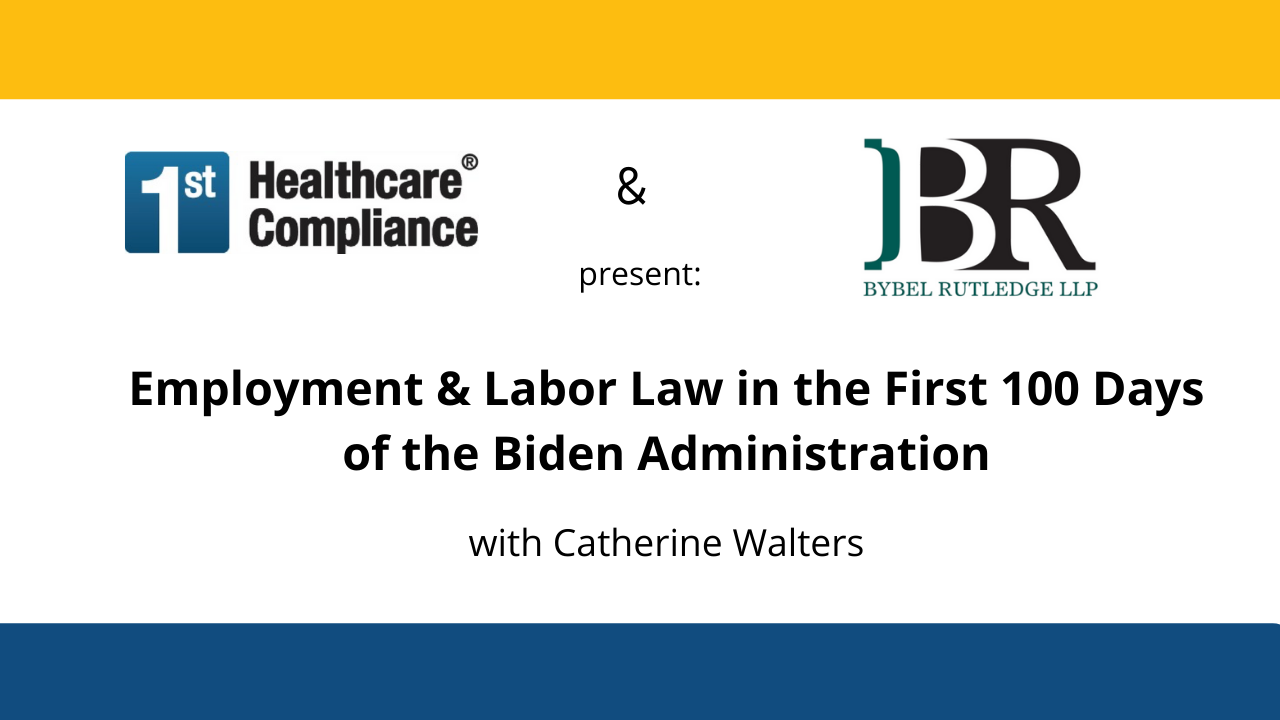
Employment & Labor Law in the First 100 Days of the Biden Administration
Catherine Walters, Partner at BYBEL RUTLEDGE LLP is a management-side labor and employment attorney representing employers of all sizes and will be presenting this timely webinar. A new President and a new DOL promise major changes for both employers and employees. We will discuss anticipated labor and employment policy changes under the new Biden Administration, including changes already in effect and changes yet to come.

A Look Back at Our 2020 Healthcare Compliance Educational Webinars
Webinars have always been vital in our educational outreach here at First Healthcare Compliance. In this unprecedented year where COVID-19 reached all our communities, we were happy to be there, wherever you were, keeping you abreast of the latest healthcare topics, laws, and changes as they happened with our highly informed, expert presenters through our complimentary webinars. Here is a look back at our educational webinars in 2020 and a highlight of our top webinar and presenter.
